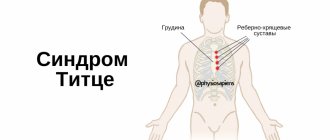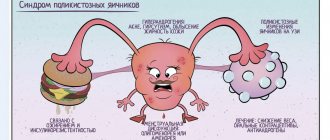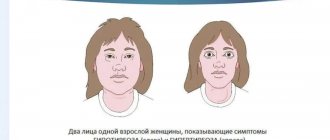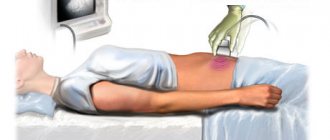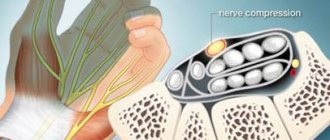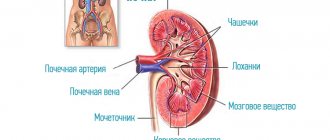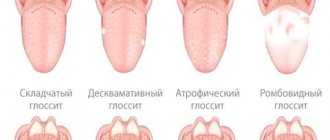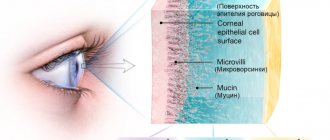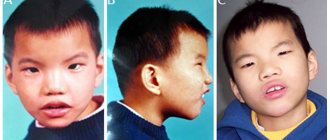Mental and neurological disorders are not uncommon in the modern world. Many of them were identified several centuries ago, but despite this, finding an effective way to treat them was not so easy.
Tourette's syndrome is one of these mysterious and complex disorders. Doctors have still not come to a consensus regarding the causes of its occurrence and methods of prevention. Moreover, according to statistics, 1 in 360 children has symptoms of the disease.
An additional difficulty is the presence of concomitant neurological disorders, which are not always possible to diagnose and treat.
In this article we will try to explain in simple terms what Tourette syndrome is, why it occurs and how you can help people with this disorder. Let's figure it out.
What is Tourette's syndrome?
Tourette syndrome is a common neurodevelopmental disorder that occurs in childhood or adolescence and is characterized by multiple motor tics and at least one vocal tic.
The syndrome was named by French neurologist Jean-Martin Charcot after his trainee Georges Gilles de la Tourette, who published a report in 1885 of nine patients with "convulsive tics".
Tourette syndrome is diagnosed based on clinical findings that detail the tics and the factors that trigger them. This diagnosis often occurs with a number of other neuropsychiatric conditions, including obsessive-compulsive disorder (OCD), attention deficit hyperactivity disorder (ADHD), anxiety disorders, mood disorders, impulse control and learning disorders.
The American Centers for Disease Prevention and Control conducted studies of children suffering from Tourette syndrome. The survey showed that every first child out of 360 children aged 6 to 17 years in the United States is diagnosed with this disease, and 37% of them suffer from a moderate or severe form of the disease [CDC, 2020].
According to researchers, boys are 3-5 times more likely to develop Tourette syndrome than girls, and adolescents 12-17 years old are 2 times more likely to develop it than children aged 6-11 years.
Another survey of parents of children with the disorder found the following:
- Parents usually first notice tics in children around the age of 6 years;
- the average time from initial identification of tics to diagnosis is 2 years;
- The average age at which Tourette's symptoms become most severe is 9 years;
- Nearly 70% of parents reported that major changes, such as moving to a new school, stress, or fatigue, worsened their child's tics [CDC, 2020].
Among children diagnosed with this diagnosis, 86% also had at least one additional mental or behavioral disorder. More than 30% of people with Tourette syndrome have obsessive-compulsive disorder, and 43% of them have at least one underlying chronic condition [CDC, 2020].
Diagnosis of the disease
The appearance of tics does not always mean that a person has Tourette syndrome3. This diagnosis is correct if:
- Symptoms first appear in childhood or adolescence (before 18 years of age).
- Simple or complex motor tics are accompanied by at least one vocal tic.
- Symptoms persist longer than 1 year.
- The disease progresses in waves, its manifestations become more or less pronounced.
- The appearance of symptoms is not associated with the use of psychoactive substances.
With temporary tic disorder, symptoms resolve in less than a year. Chronic (persistent) tic disorder lasts longer than a year, but the tics can only be motor or vocal. Temporary and chronic tic disorder is not Tourette's syndrome.
Diagnosis of the syndrome is performed by a neurologist or psychiatrist. He conducts a survey during which he needs to describe the manifestations of the disease, tell how long they last, how often they appear.
What signs indicate Tourette syndrome in a child?
Usually the disease becomes noticeable at the age of 5-7 years. You should consult a neurologist if you often experience rapid, repetitive, involuntary movements of the face, hands or body. It can be:
- blinking (Fig. 2);
- grimaces;
- nose twitching;
- movements of the neck, arms or legs.
Tics may change, but they persist and gradually intensify. Vocal tics appear later, but in some children they appear almost simultaneously with motor ones.
Figure 2. One of the signs of the syndrome is severe blinking.
Source: Tourette's Doesn't Have Me", HBO and the Tourette Syndrome Association / Wikipedia (Creative Commons Attribution-Share Alike 3.0 Unported) When diagnosing Tourette's syndrome, the following methods are used for examination:
- A clinical urinalysis is performed to determine the levels of catecholamines and metabolites in the urine. This allows you to evaluate the excretion of dopamine, norepinephrine, homovanillic acid in order to judge the violation of dopamine secretion.
- Electroencephalography is a study of the electrical activity of the brain, allowing one to evaluate the functions of its structures.
- Electromyography is a recording of myograms of muscles involved in motor involuntary movement.
- Computed tomography or magnetic resonance imaging to visualize the brain.
These methods are used in diagnosis only in cases where, in addition to tics, there are tremors, signs of epilepsy, visual or cognitive impairment. They help distinguish Tourette's syndrome from autism, epilepsy, schizophrenia and a number of other diseases.
Symptoms of Tourette's syndrome
The key features of the syndrome are tics—involuntary sounds and movements that must be present for at least 12 months to meet diagnostic criteria [Touretess action, 2021]. They usually appear in childhood between the ages of 2 and 14 (average around 6 years) and come in two types: physical and auditory (vocal).
Examples of physical tics include:
- flashing;
- eye rolling;
- involuntary grimaces;
- shrug;
- twitching of the head or limbs;
- jumping;
- whirling;
- touching objects and other people.
Vocal tics may manifest themselves in the following ways:
- throat clearing;
- whistling;
- frequent cough;
- tongue clicking;
- animal sounds (such as grunting);
- random words and phrases;
- repetition of a sound, word or phrase;
- swear words and profanity.
Tics are usually not harmful to overall health, but some, such as head jerking, can be very painful [NHS, 2021].
Tourette's syndrome was once considered a rare and bizarre disorder, and not everyone understood what kind of disease it was. It was commonly associated with coprolalia, a disorder that causes the utterance of obscene words or socially inappropriate and derogatory remarks. However, to date it has been scientifically established that coprolalia is rare - only 1 in 10 people suffering from the syndrome [Touretess action, 2021].
Tics can occur in almost any part of the body. Sometimes patients report “internal tics,” such as deep abdominal muscle tension and internal organ spasms.
Almost every person with the disorder experiences a physical sensation similar to itching, the need to sneeze, burning, or muscle spasms. As a rule, it appears before the tick itself and disappears immediately after.
Tics may worsen during periods of stress, anxiety, and fatigue. Some people may be able to control them for short periods of time in certain situations, such as while at school or work. This skill requires strong concentration and great effort from them. Moreover, according to some evidence, after such containment, tics begin to worsen when the person is in a calm environment [NHS, 2021].
The term "tic attack" is used to describe attacks of severe, continuous, uncontrollable, and disabling tics that last anywhere from a few minutes to several hours. These attacks can cause great anxiety for the person experiencing them, as well as for those around them.
Up to 85% of people with Tourette syndrome have associated symptoms, including:
- Attention deficit hyperactivity disorder is a group of behavioral symptoms that include inattention, hyperactivity and impulsivity that interfere with functioning or development.
- Obsessive-compulsive disorder is an anxiety-related condition in which a person frequently experiences intrusive thoughts or compulsions that cause severe stress.
- Anxiety disorder is a persistent feeling of worry that interferes with a person’s normal daily routine and does not go away with reassurance or reassurance.
- Aggressive behavior that affects about 40% of people with Tourette syndrome.
- Executive functional difficulties that affect a person's ability to regulate their behavior and reactions. There is good evidence to suggest that people with Tourette syndrome often have problems in this area.
- Sensory processing difficulties may also be a sign of the syndrome. These include problems with any of the senses: taste, touch, hearing, vision, smell, proprioception (body awareness), vestibular (movement) and interoception (internal sensations such as thirst, hunger and pain).
- Depression is a prolonged period of poor health. Often this condition is not provoked by anything.
- Autism spectrum disorder (ASD) or autism is a lifelong developmental disorder that affects the way a person communicates and relates to others, as well as how they experience all their senses and interact with the world around them.
- Sleep problems have been identified in both children and adults with Tourette syndrome. May include difficulty falling asleep and frequent awakenings at night.
Sometimes these additional symptoms are much more problematic than the tics themselves, as they can cause a lot more discomfort and complications to the person.
There is currently no technology that can predict how Tourette syndrome affects a person in the long term. According to some data, approximately half of children with this diagnosis significantly reduce their symptoms as they grow older [Movement Disorders Clinical Practice, 2019].
Service price
- Basic services Consultative appointment with a doctor (including a candidate of medical sciences, adults and children)3,000
Identification and treatment of Tourette's syndrome and other hyperkinesis. Consultative assistance, inpatient treatment. A combination of medication, psychotherapy and physical therapy. We help children, teenagers and adults. We work around the clock.
Tourette's syndrome
- a disease of the nervous system, manifested by involuntary and abnormal muscle contractions (motor tics) and shouting of sounds or phrases (audio tics).
Causes of Tourette's syndrome
A large number of works have been written about Tourette syndrome, the authors of which tried to find out the reasons for its origin. Although the exact pathophysiology of the disorder remains incompletely understood, there is growing evidence that it results from complex interactions between multiple genes and environmental factors.
Tourette syndrome is known as a neurodevelopmental disorder because the predisposition to tics appears to develop as the brain develops. Scans have shown that people with the syndrome have certain areas of the brain that function differently or are a slightly different size (for example, some of the structures in the motor circuits that control movement).
Another disorder is likely an imbalance in the function of the brain's neurotransmitters—the chemical messengers that send signals between nerve cells.
Although tics are often inherited, to date no gene has been identified that causes Tourette syndrome. Other causes include environmental factors that may influence the risk of tics as the brain develops.
A large study of more than 6,000 pregnant women found that the strongest risk factor was poor maternal weight gain during pregnancy. Additionally, drug and alcohol use during pregnancy and whether the child was the firstborn were also associated with a higher risk of the child developing Tourette syndrome.
In recent years, much attention in both the medical literature and the mainstream media has been given to the hypothesis that some tics and neuropsychiatric disorders may be caused by an underlying autoimmune or autoinflammatory response associated with streptococcal infections [Tourette Association of America, 2021 ].
Treatment of Tourette's syndrome
To date, there is no scientific evidence confirming the effectiveness of any single treatment for Tourette syndrome. However, scientists and researchers have done a lot of work in this direction over the past 20 years and continue to study various options and ways to combat the syndrome.
One of the most popular and accessible treatments for the syndrome is behavioral therapy, which provides tools to help patients learn to change certain behaviors and attitudes about the tics themselves.
The best scientifically proven behavioral treatment is considered to be habit reversal therapy. Although the technique has been researched since the 1970s, it has only recently been shown to be effective as part of a comprehensive behavioral intervention for tics.
Habit withdrawal therapy consists of several stages in which the patient, together with the doctor, performs the following actions:
- Identifies and describes all of his tics in detail.
- Selects one specific tick to work on (usually the one that bothers him the most).
- Describes in detail where in his body the tic occurs and what muscles and organs are involved.
- Determines the triggers that provoke a given tic and the sensations that precede it.
- Looks for an alternative way to satisfy the urge. It is important that the new movement does not look more unusual than the teak itself and does not interfere with human activity.
Once a new habit is formed, this approach is applied to all remaining tics.
The therapist also helps the patient understand what usually happens before and after an attack of tics (certain reactions to a situation, thoughts or feelings that he experiences in a certain place, and the reactions of others). He will then work to reduce the number of situations that trigger them. In this case, relaxation or the ability to look at the situation differently can help.
Mental, emotional and physical health is the most important factor determining a person’s quality of life. Taking care of it is everyone's responsibility. We have prepared two useful online programs for you, the purpose of which is to help you maintain your health for as long as possible.
To make it easier for you to understand the diversity of what is good and what is bad for your body, we suggest taking the online program “Human Health”. In just 8 weeks, you will learn to independently analyze the state of your health, prevent many diseases, and at the same time discover the secrets of a happy and long life.
And the online program “Mental Self-Regulation” contains the most current techniques, techniques, cases and methods necessary for successful social adaptation, self-motivation, improving concentration and attention, and much more. By spending a few hours a week on training, you will gain a huge amount of knowledge that you can immediately put into practice.
And we will continue.
If necessary, patients with Tourette syndrome are prescribed medications that can reduce symptoms and improve quality of life. Unfortunately, side effects from drug treatment are not uncommon and the effectiveness of drugs varies from person to person, so they are prescribed by a doctor after a detailed and serious examination.
The doctor and the patient should decide:
- Is it worth treating this disorder?
- what symptoms need to be treated;
- whether co-occurring conditions (such as ADHD or OCD) should be treated;
- whether a combination of medications is needed to treat different symptoms.
Assessing the effectiveness of treatment is complicated by the fact that the manifestation of tics weakens or intensifies over time. Sometimes the doctor may think that treatments are working well, but this may be a period when the tics have naturally decreased.
Treatment of Tourette's syndrome should begin with small doses of therapy, increasing them gradually. Thanks to this approach, side effects, if they occur, are easier to recognize and control. It is also recommended to make only one change at a time. If too many changes are made quickly and the symptoms of a disorder improve or worsen, it is difficult to understand why.
Stopping treatment suddenly is usually not a good idea, but sometimes it is necessary (for example, if a person has a severe reaction or worsening condition). This should only be done after consulting a doctor.
Although there is no medical evidence that a specific diet is better for people with the syndrome, many people find that their tics get worse when they eat foods that contain harmful additives, artificial colors and a lot of sugar.
Doctors recommend that patients with the disorder eat a diet rich in fresh and natural foods that contain large amounts of vitamins and minerals. Exercise greatly helps relieve symptoms of the disorder. However, some patients find that too much physical activity makes their tics worse. Therefore, you should limit exercises depending on what works in a particular case.
Since physical tics often lead to pain, gentle stretching every day can help keep your muscles relaxed and elastic. Yoga, meditation, aromatherapy and hypnotherapy can also have a positive effect on the symptoms of the disease. However, there is little evidence to support the effectiveness of complementary therapies in general.
Relaxation is essential to reduce the stress experienced by a person with a tic disorder. The most common relaxation training involves deep breathing combined with gradually tensing and relaxing different muscle groups. In 2021, Tourettes Action released a video of a guided relaxation system for people with Tourette's syndrome to help relieve tics. It can be found on the Internet.
In a small number of people with Tourette syndrome, tics may be so severe and painful that available treatment options, behavioral interventions, or medications cannot significantly reduce their severity. In this case, it is necessary to resort to more serious intervention.
Among neurosurgical methods, deep brain stimulation with implantation of electrodes into selected objects undoubtedly has advantages over traditional surgery, which is more invasive and irreversible.
This method was first tested in 1999. Its purpose is to provide continuous electrical stimulation to specific brain structures, thereby selectively simulating the activity of these areas, while avoiding widespread side effects by targeting other unused circuits [CDC, 2020].
Currently, such stimulation for the treatment of the syndrome is still in its infancy. Although preliminary studies show promising results in reducing tics, a number of questions still remain regarding optimal targets and suitable candidates. Moreover, the long-term impact of the procedure on other aspects of the syndrome (such as OCD, aggression, impulsivity, depression and anxiety) requires further study.
It should be noted that the surgical procedure carries a risk of complications (including death), and continued stimulation may have side effects. Analysis of the existing literature shows that in most cases, patients after surgery still require drug treatment, albeit in significantly reduced dosages. These and other important questions can only be resolved through future collaborative trials in sufficiently large patient samples [CDC, 2020].
Living with Tourette Syndrome
The Conversation recently conducted a mini-study in which it surveyed 16 UK residents on the topic “How does Tourette Syndrome affect your life?”
In an interview with journalists, some of the respondents said that they live a full life, having a job they love and a happy family. They claim that this condition has helped them grow emotionally and find more meaning in their lives. One of the respondents about [The Conversation, 2019].
However, some survey participants reported that the syndrome made them feel lonely. Even those who were accustomed to their disorder felt the need to hide their tics in public. They have learned to control and suppress them in every possible way, fearing condemnation and bullying. To avoid public ridicule and bullying, they preferred to isolate themselves from others.
Most respondents reported being bullied as children and sometimes as adults. Some of them even experienced a negative reaction from their parents to their condition. One of the survey participants recalls: “I was forced to hide in closets and rooms when guests came to us. I was never taken out in public. I was even kept away from my own family, with the exception of my grandparents” [The Conversation, 2019].
Another participant said: “Imagine working in a bar, stressful nights and stuff like that. You start to have tics. Drunk visitors start asking stupid questions and making fun of you. You try to talk to your employer about it, arguing that you need to rest or you'll get worse. But he doesn’t understand it because he doesn’t care” [The Conversation, 2019].
People in the study said they wanted to be “normal” in order to achieve all their goals. They feel that Tourette's syndrome is holding them back from being who they want to be and doing what they want to do.
The lives of people suffering from the syndrome are often complicated by public attitudes towards this diagnosis. For example, 15-year-old American Emily Womack, who suffers from vocal tics, was asked to leave the cinema while watching trailers.
Emily explains that she "let go of her tics" before the film started so that while watching it her screams would not disturb her and those around her. Emily's mother Tina said the family were sitting watching trailers when the theater director approached them: “He told me that nine people had complained about Emily's noises. I explained that she suppresses noise during the show and there is nothing to worry about since that is what she does during every movie she goes to."
“It was a crowded theater with people laughing loudly, talking loudly, and even kids throwing popcorn and annoying people. But Emily was chosen out of everyone solely because of her disability,” says Tina Womack [BBC News, 2019].
The Tourette Syndrome Association of America posted a video of Emily on their Facebook page where she talks about what happened. The post, which was viewed by several thousand people, prompted many with the disorder to share their own stories.
Association CEO and President Amanda Talty says, “Being asked to leave created an environment in which Emily and her family felt unwelcome due to her disability under the Americans with Disabilities Act. Offering free movie tickets and popcorn will not relieve the embarrassment and shame that a person feels in such situations. Unfortunately, this is a familiar story for most people with Tourette's syndrome, and this moment will stay with Emily for the rest of her life" [BBC News, 2019].
In the last 20 years, a large number of films have appeared that describe the lives of people suffering from Tourette syndrome . Here are just a small part of them:
- Before the Class (2008).
- Inner Road (2014).
- Vincent wants to go to the sea (2010).
- I am a teacher (2018).
- It's not me, it's my tick (2011).
The purpose of this movie: to popularize the disorder in order to show the world that it does not harm others, and people suffering from it are exactly the same members of society as everyone else. The more people know about Tourette's syndrome, the more tolerant they will be.
American singer and songwriter Billie Eilish made an official statement several years ago that she suffers from Tourette syndrome, which she was diagnosed with as a child. “I never mentioned my syndrome online because I never wanted people to think about it every time they think about me,” the singer admitted [Billboard, 2018].
The singer went on to say that her disorder was a constant part of her life from an early age. “I have learned to suppress my tics and have learned certain techniques that help reduce them when I don’t want to be distracted in certain situations,” she wrote on her social media page.
The singer's parents were shocked when they learned about their daughter's illness. Thanks to her fighting spirit and the support of her loved ones, Billie was able to turn this disorder into a feature. She realized that her tics made her truly unique. Faced with the fact that those around her turned their backs on her, she realized in time that she could be strong without people who cared only about her appearance and behavior [Life, 2020].
This is precisely what her songs are dedicated to, which made her famous throughout the world. Now, with an audience of millions of fans, Billy openly talks about his illness and encourages people with the same syndrome not to give up.
Billie Eilish's confession has helped people suffering from Tourette syndrome find hope. The star openly spoke about her disorder because she is confident that spreading information about it will improve the quality of life for people suffering from it and their loved ones [Billboard, 2018].
In addition, identifying with a celebrity will help people with the syndrome increase their self-confidence. They will no longer be ashamed of their diagnosis and will believe in making their dreams come true, just like Billie Eilish.
In addition to Billie Eilish, American football player Tim Howard and screenwriter and comedian Dan Aykroyd suffer from Tourette syndrome. According to some sources, the famous Austrian composer Wolfgang Amadeus Mozart and the Roman Emperor Claudius also had this disorder.
Prognosis and course of the disease
Tics occur in many children, but they often go away so quickly that they are not even diagnosed. Only 0.3-0.8% of children are diagnosed with Tourette's syndrome, and 1% of these continue to have it into adulthood6. This disease is not dangerous to health, does not affect development, but can cause behavioral and social problems. It is more severe at high levels of stress, if a person tries to suppress tics, if he does not receive support, if the disease is not treated.
Tourette's syndrome and learning
If a child with Tourette syndrome has multiple motor and vocal tics, he can be homeschooled. To do this, you need to pass a psychological-medical-pedagogical commission (PMPC). This commission will assess the child's health status. She may recommend further schooling, training according to an individual plan or an adapted program, or transfer to home schooling. If the disease persists into adulthood, severe cases may result in disability. This will provide a number of social benefits, including exemption from conscription and the right to receive benefits.
The prognosis will be favorable if:
- contact a neurologist and psychotherapist as soon as possible;
- apply ways to manage stress, emotions, self-esteem;
- use techniques to “replace” or weaken tics;
- treat concomitant diseases or disorders.
Sometimes Tourette's syndrome greatly reduces the quality of life, affects the psychological state, and interferes with social adaptation. It is important to treat this disease and remember that even with it, a person can lead a normal life and achieve success.
Billie Eilish has Tourette's syndrome
The story of the famous American singer Billie Eilish confirms that Tourette syndrome can be controlled and you can lead a full life (video 2).
Video 2. Billie Eilish has Tourette syndrome.
Billie Eilish hid the disease for a long time, but in 2021 she admitted that she has Tourette syndrome. After this, the singer received many messages from fans who also have this disease or simply support her. The singer says that she has lived with the syndrome all her life, has learned to control it well, and her loved ones perceive its manifestations as something normal.
Billie Eilish lives with Tourette syndrome. Photo: benhoudijk/Depositphotos


